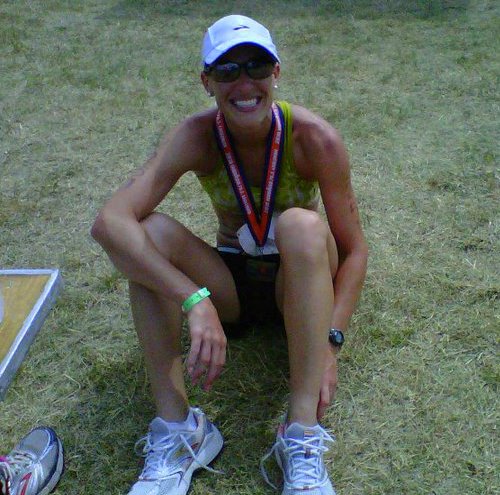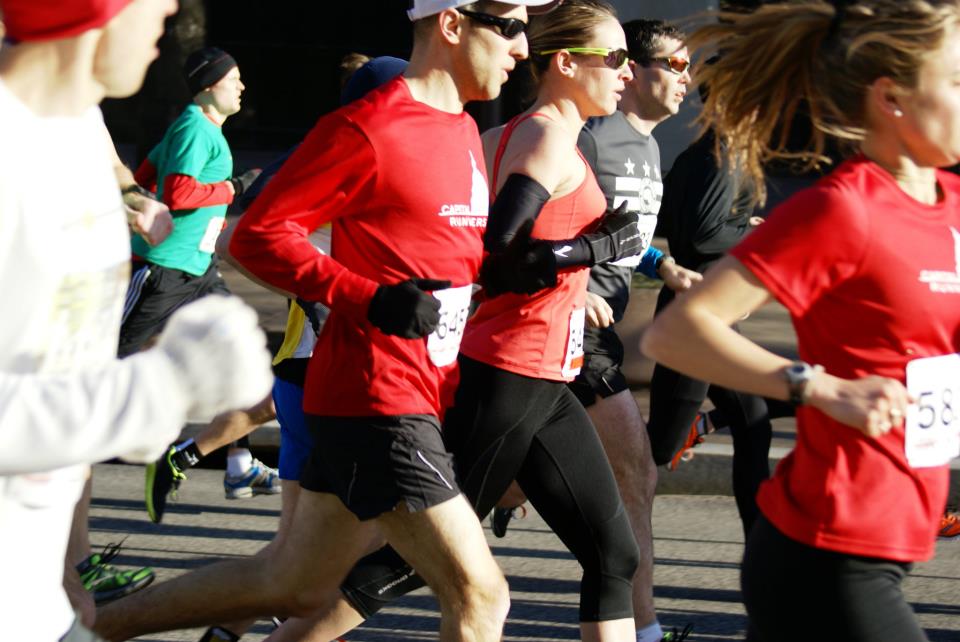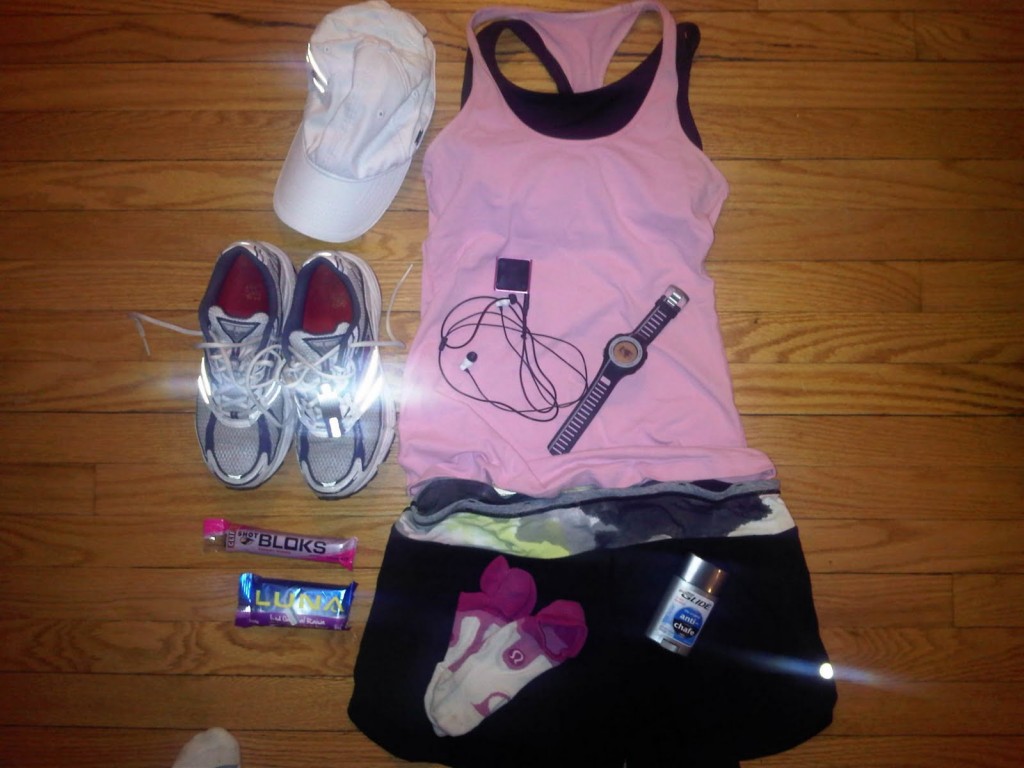Hi Healthy, Happier Bear readers! My name is Melody and I blog at {will run for margaritas} – a journey inside my love for running and fitness, with a side of margaritas. I live in Arlington, VA (right outside of DC) with my husband, 12 pairs of running shoes (I work in the industry – but am slightly obsessed) and 3 bikes.
I ran my first marathon in May 2011 – it was a small local race – Potomac River Run Marathon. It was a double out-and-back, and I can honestly say that was one of the most mentally challenging adventures of my life. I worked hard for that race, and ran a Boston Qualifying time. In 2 weeks, I’m running my second marathon: the Boston Marathon. I couldn’t be more excited, nervous, or ready for the race. I feel stronger, faster, and more prepared – in part, thanks to little changes I made from marathon #1 to marathon #2.
1) Tell the world
I use my blog, {will run for margaritas}, Twitter (@run4margaritas) and Facebook as a tool to hold myself accountable. I write about the good, the bad, and the ugly of running. I’m honest – with myself and with my readers. Tracking my progress keeps me motivated and is a real assessment of where I’m at (in terms of fitness and progress).
2) Hire a coach and/or train with others
For Boston, I decided to use a coach to help me train. This is something that I didn’t do when I ran my first marathon, and I can already see the benefits & differences. It helps to run with people that are better and faster than me – it pushes me to limits I didn’t know possible. Additionally, I love being able to ask (hard) questions, and get an honest response (from my coach). He lets me know if I need to rest, or if I had a great workout. It’s a motivation tool that gets me through the early mornings and tough workouts.
Note: I know it’s not possible for everyone to hire a coach – if that’s the case, try to find a local running group to help you train. No matter who or what you do to train, running with others will always make you better and faster. 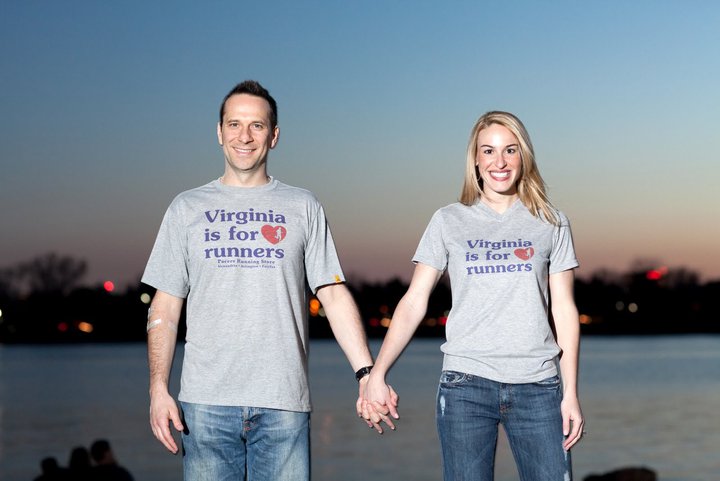
3) Owe your family & friends (a lot of drinks on you)
Training for a marathon is a HUGE commitment. It takes up most of my free time – and with a job that requires a lot of night and weekend work, I’m saying “no” to most social engagements. During a typical marathon training cycle, I hardly see or talk to my family/friends, let alone my own husband (fortunately we live together). I’m so thankful for my family and friends for being supportive and understanding my (crazy) love for running. Post-marathon, I host a huge happy hour and owe my friends drinks from the past 4 months.
4) Listen to your body
I can’t think of better advice. LISTEN TO YOUR BODY. It’s not always easy to take a day off or cut the mileage – but if your body hurts, it’s trying to tell you something. I’m of the thinking that it’s better to take 1-2 unexpected days off during the training cycle, than push through and end up injured (it’s just not worth it!).
5) Plan (at least) one race during your training cycle
Racing is the best way to gauge your fitness and progress. It also boosts confidence and race readiness. I try to race a half-marathon about 1 month before my marathon – but this year I had a scheduling conflict and ran an 8k instead. Even though it wasn’t the ideal distance, I ran a PR and left feeling confident about my race on April 16.
6) Have a goal
It’s smart to have a goal time for a race (and usually an A, B, and C goal). It’s something that you can work hard to achieve. It also keeps you accountable to workouts, speed work, long runs, and life. I have a big goal for Boston and have been training harder to (hopefully) achieve it! 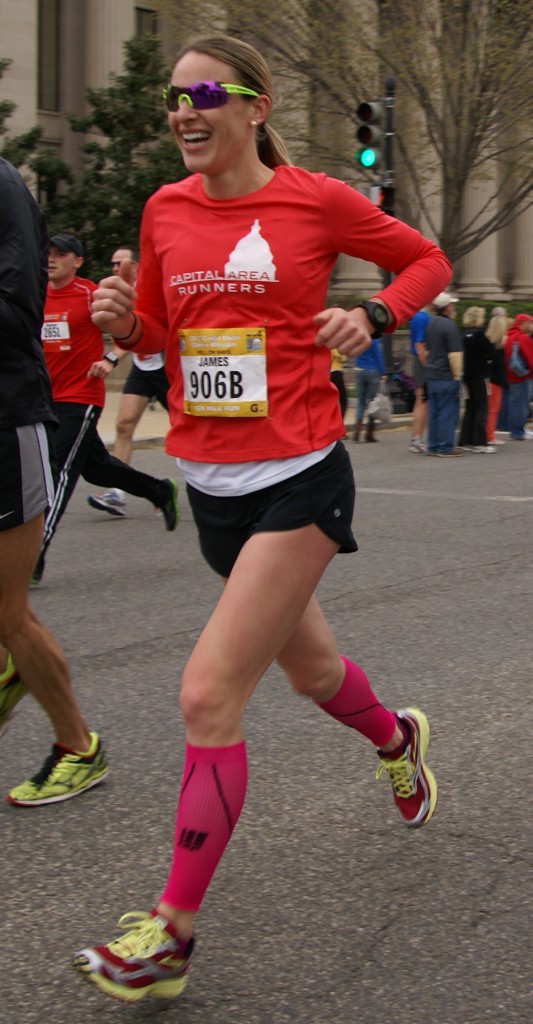
Good luck to ALL of you! I can’t wait to read your 2012 Marathon race reports. I’m officially in taper mode (so I’ll be looking to all of you for long run and race recaps for the next 2 weeks).
And if there was any question: yes, I will be drinking margaritas at the finish of Boston! Cheers.

